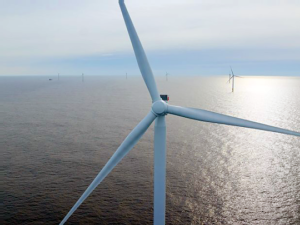Fiat Chrysler Plans Hydrogen-Engine Partnership With Hyundai
By: Tommaso Ebhardt | Dec 03 2017 at 09:40 PM | International Trade
Fiat Chrysler Automobiles revealed that it’s in talks with South Korea’s Hyundai Motor Co. about a partnership to develop hydrogen engines.
The alliance, which would also cover transmissions, could become “a strong one,” Fiat Chrysler Chief Executive Officer Sergio Marchionne said Saturday at the Alfa Romeo Museum in Arese, near Milan. “We welcome the interest from other automakers in our advanced transmissions and hydrogen-powered technologies,” Hyundai said in an email Monday.
Cooperation on hydrogen propulsion would come despite electric-powered autos being established as the dominant technology in the emerging post-fossil fuel era. Hyundai initially led the commercialization of fuel-cell vehicles, though it has fallen behind Japan’s Toyota Motor Corp. in terms of sales, while Fiat backed away from hydrogen power earlier this decade.
“There is the potential of a technical partnership with Hyundai, which already supplies some components and transmissions for the U.S.,” Marchionne told reporters after a presentation on Alfa’s planned Formula One return. “Let’s see if we find a deal to develop transmissions and hydrogen.”
Marchionne, a vocal proponent of automaker consolidation, having led Fiat’s takeover of Chrysler, said there is no likelihood of a merger with Hyundai.
Shrinking Size
Shares of Hyundai fell 1.2 percent to 159,500 won as of 11:23 a.m. in Seoul Monday.
The Seoul-based automaker is working on shrinking the size of a fuel-cell powertrain to one that’s comparable to an internal-combustion engine, so that it can fit into various models as well as reduce costs. Hyundai makes the ix35 Fuel Cell and plans to release a long-range hydrogen-powered SUV next year.
Fiat Chrysler has focused on electric developments, though on a limited basis. The company has offered a plug-in version of the 500 subcompact that’s available only in California, and last year introduced a hybrid variant of the Pacifica minivan.
“It can be a win-win situation for both automakers,” said Koh Tae-bong, a senior analyst at Hi Investment & Securities Co. in Seoul. “If the report turns out to be true, Hyundai would be able to sell fuel-cell engines, an area where Japanese automakers are ahead, while FCA can expand its lineup with fuel-cell vehicles.”
Marchionne has said Fiat Chrysler will push forward with electrification but doesn’t see it as the sole alternative to traditional engines. Hyundai Motor’s affiliate Hyundai Mobis Co. is an established supplier, providing a six-speed transmission for the Jeep Compass Patriot.
Five-Year Plan
Marchionne, who at 65 is preparing a five-year business plan before retiring from the post in 2019, confirmed plans to spin off Fiat Chrysler’s Magneti Marelli and Comau component businesses into separate companies by the start of 2019. The mechanism hasn’t been decided, but could include selling a stake to raise cash.
A spinoff of the Alfa Romeo and Maserati brands is too remote to be discussed at the moment, Marchionne said, while highlighting the importance of motor racing in Alfa’s development. A return to F1 could help polish the marque’s image as it seeks to rebuild an upscale reputation.
Marchionne has invested billions of dollars to develop new vehicles after the Alfa line-up shrank and sales collapsed in the last decade. F1’s global appeal will bring wider exposure after previous attempts to expand beyond Europe were delayed.
Financial Goals
The CEO confirmed Fiat Chrysler’s financial targets for 2018, including an increase in operating profit to about 9 billion euros ($10.7 billion) and the elimination of debt. He said he anticipates “manageable costs” from a diesel investigation that Fiat is facing in the U.S.
The issue “will cost us something, but we have reduced the risk expectations,” Marchionne said, adding that a separate French probe is groundless.
Marchionne, who met with U.S. Vice President Mike Pence and other officials at the White House this week to discuss NAFTA concerns, said he doesn’t see Donald Trump’s administration leaving the North America Free Trade Agreement.
“They want to find a solution that somehow re-establishes the American interest being more important,” he said. “They think they gave up too much at the table and they want some of it back. The question is how much and when.”









